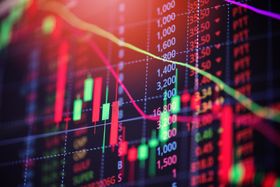What Makes a Stock Price Go and Stay up Without Hype?
Read this post to find out what is behind a stock, how the market fluctuation works, and how the market climate can also affect the stock price.
Published May 12, 2021
Billions of shares of stocks are bought and sold each day, and it's this buying and selling that sets stock prices. Stock prices go up and down when someone agrees to buy shares at a higher or lower price than the previous transaction. In the short term, this dynamic is dictated by supply and demand.
Generally speaking, demand for a stock is driven by how confident investors are about that stock's prospects. In the short term, things like quarterly earnings reports that beat expectations, analyst upgrades, and other positive business developments can lead investors to be willing to pay a higher price to acquire shares. On the flip side, disappointing earnings reports, analyst downgrades, and negative business developments can cause investors to lose interest, thus reducing demand and forcing sellers to accept lower prices.
Long-term investors, as I can identify (maybe you can too), don't care too much about the short-term developments that push stock prices up and down every trading day. When you have many years, or even decades, to let your money grow, what matters is where the company will be in 5, 10, or 20 years from now.
So don’t worry about the news, if it’s good it will hold the price, if it’s only hyped, then pray you don’t lose much money.
Related Articles

How to Determine When to Buy and Sell Dogecoin
Filip Dimkovski
May 25, 2021

ZuluTrade: Reviewing the Social and Copy Trading Platform
Andrew Moran
December 23, 2024

MetaTrader 4: Safety, Scams, Community, Trading CFDs, Commodities & Stocks
Filip Dimkovski
December 22, 2024

The Difference Between Swing Trading and Day Trading
Andrew Moran
December 30, 2021

Binance Faces Class Action Lawsuit as US Supreme Court Denies Appeal
Adam Walker
January 14, 2025
